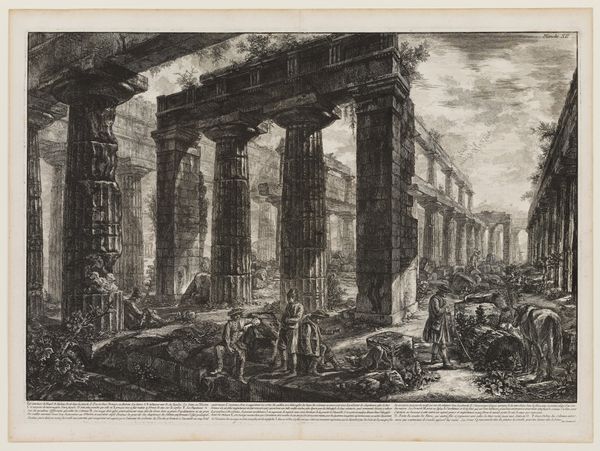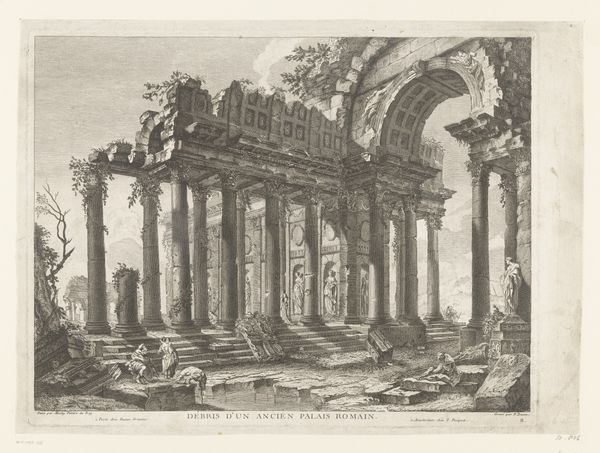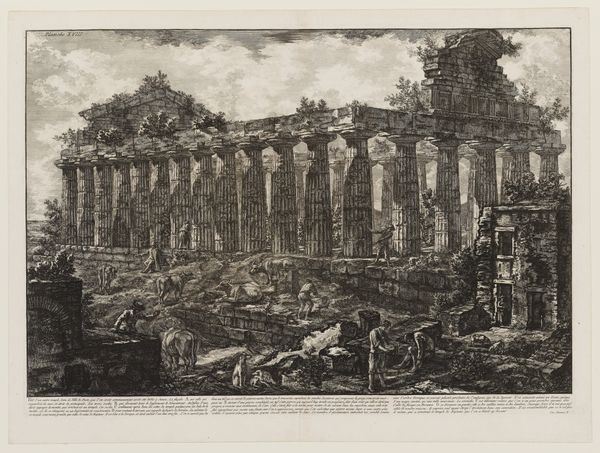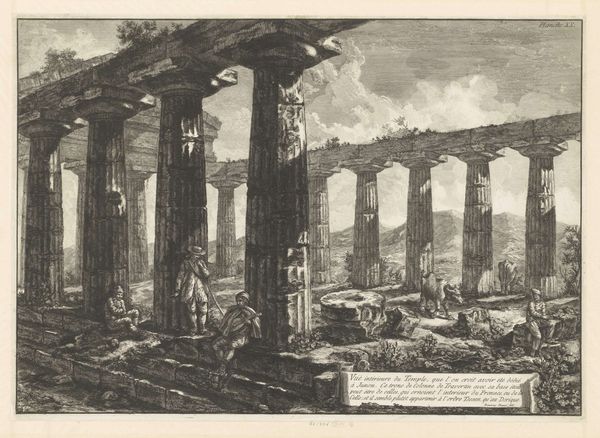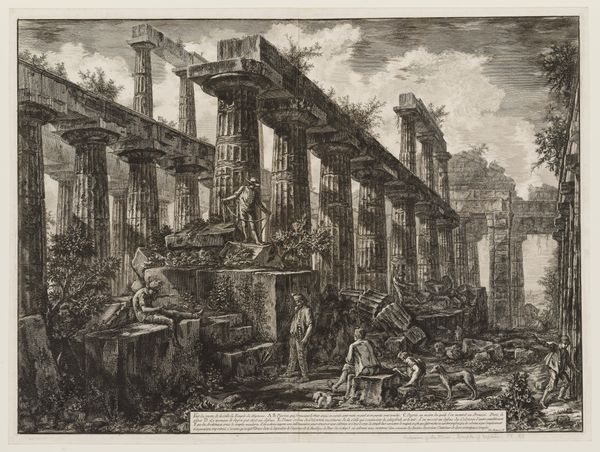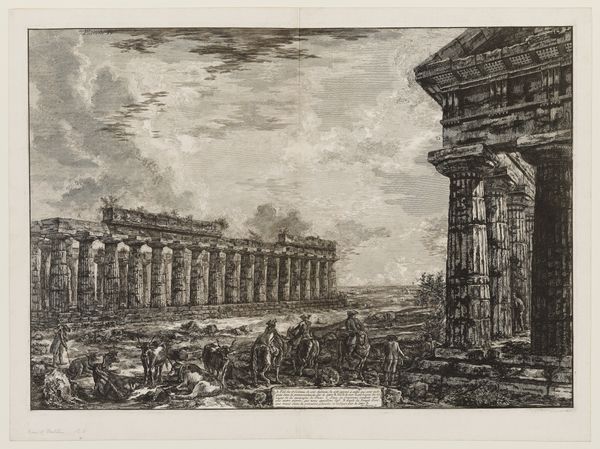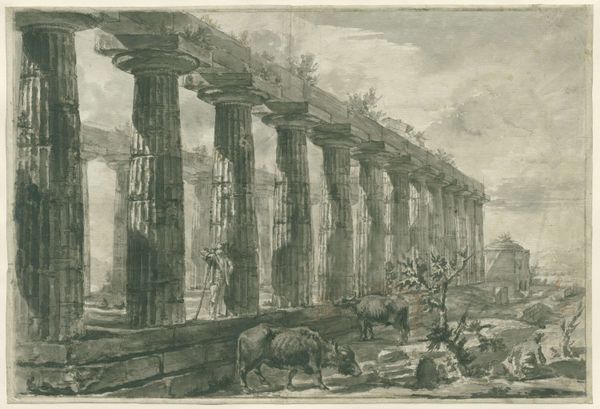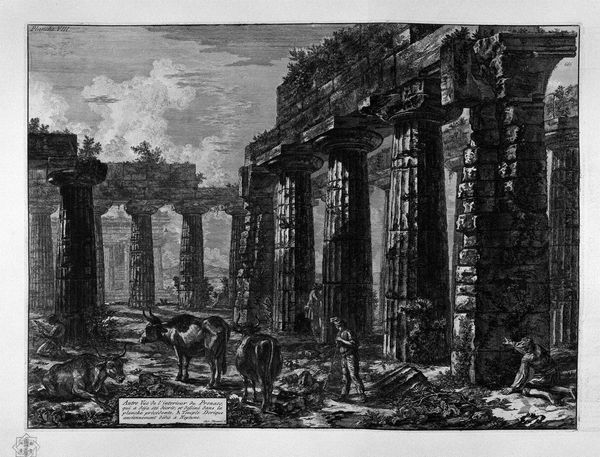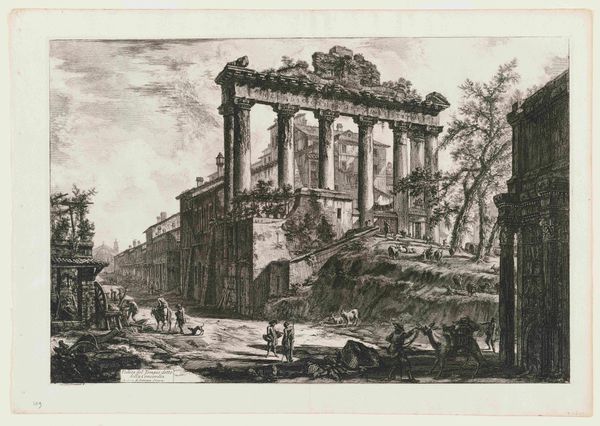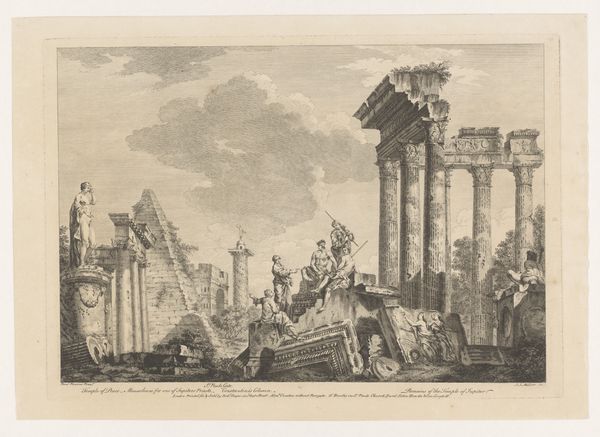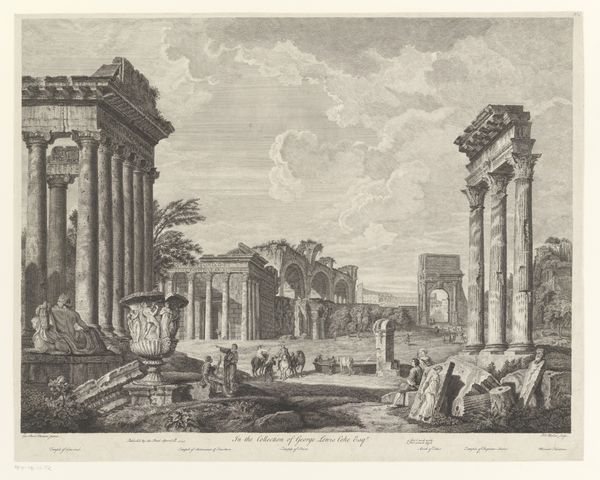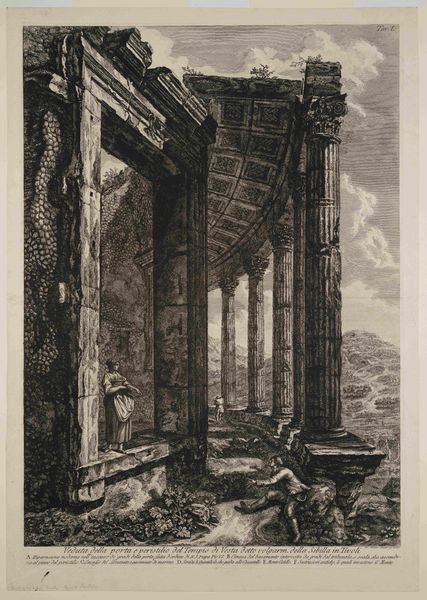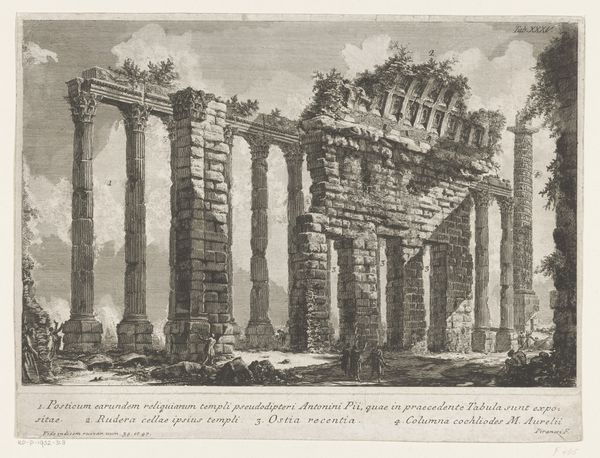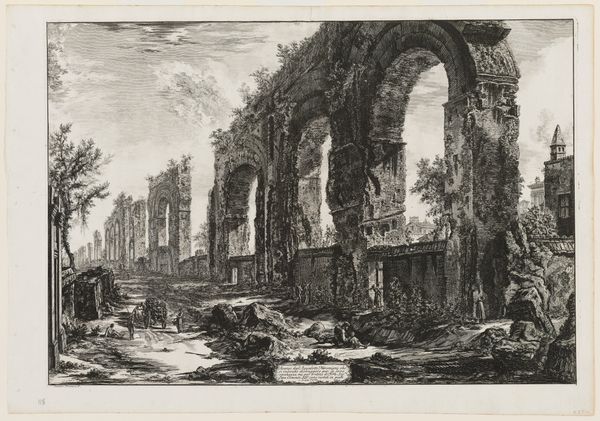![Another view of the pronaos [...] by Giovanni Battista Piranesi](/_next/image?url=https%3A%2F%2Fd2w8kbdekdi1gv.cloudfront.net%2FeyJidWNrZXQiOiAiYXJ0ZXJhLWltYWdlcy1idWNrZXQiLCAia2V5IjogImFydHdvcmtzL2E3NGEwM2U0LWNmM2QtNDU3MS05YmJiLTExNTJlYjljOTczNi9hNzRhMDNlNC1jZjNkLTQ1NzEtOWJiYi0xMTUyZWI5Yzk3MzZfZnVsbC5qcGciLCAiZWRpdHMiOiB7InJlc2l6ZSI6IHsid2lkdGgiOiAxOTIwLCAiaGVpZ2h0IjogMTkyMCwgImZpdCI6ICJpbnNpZGUifX19&w=3840&q=75)
print, engraving
#
neoclacissism
# print
#
landscape
#
ancient-mediterranean
#
history-painting
#
engraving
Dimensions: 495 mm (height) x 672 mm (width) (plademaal)
Giovanni Battista Piranesi created this etching of a classical ruin sometime before 1778. Using metal plates and acid, Piranesi captured not just the appearance of the stone structure, but also a sense of its immense scale. Look closely, and you can see the texture of the eroded stone, and the deep shadows that accentuate the monumentality of the columns. Consider the labor involved – first, in quarrying and shaping these massive blocks, then in the skilled work of engraving, which allows for infinite reproduction. This printmaking process democratized images of classical architecture, making them available to a wide audience, which helped fuel the Neoclassical movement. This wasn't just about documentation. Piranesi's prints were powerful tools for shaping perceptions and even inspiring political thought. So, next time you encounter an image, consider the making behind the image, and how it shapes our understanding of the world.
Comments
No comments
Be the first to comment and join the conversation on the ultimate creative platform.
